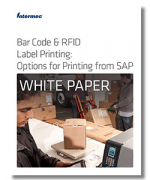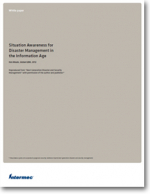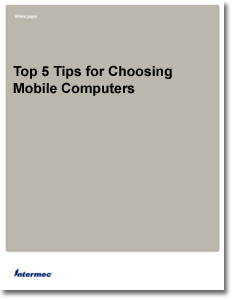Top 5 Tips for Choosing Mobile Computers
Dozens of manufacturers offer hundreds of devices in thousands of configurations, but only one may be best suited for your particular environment and workforce.
Many mobile computers can quickly be ruled out from consideration because they lack the battery power to last the length of a shift, or lack the staying power to remain reliable throughout a three-to-five year life cycle.
Features like rugged construction, well supported operating systems, standard interfaces, remote management support and flexible peripherals provide value by protecting organizations from having to replace their mobile computers prematurely.
Sorting through the smart phones, PDAs and ruggedized computers available for business use is no easy task.
Dozens of manufacturers offer hundreds of devices in thousands of configurations, but only one may be best suited for your particular environment and workforce.
Rather than trying to stay on top of all the products that are being introduced and discontinued, the technologies and features being added, plus available peripherals and software, enterprises can quickly cut down to a few viable options by following five basic tips:
1. Consider the environment and the user;
2. Stick to industry standards & certifications;
3. Simplify support;
4. Require flexibility;
5. Pay attention to power.
This white paper explains these tips and how they can be applied to assist the enterprise mobile computer selection process.
What’s Related




Favorites





